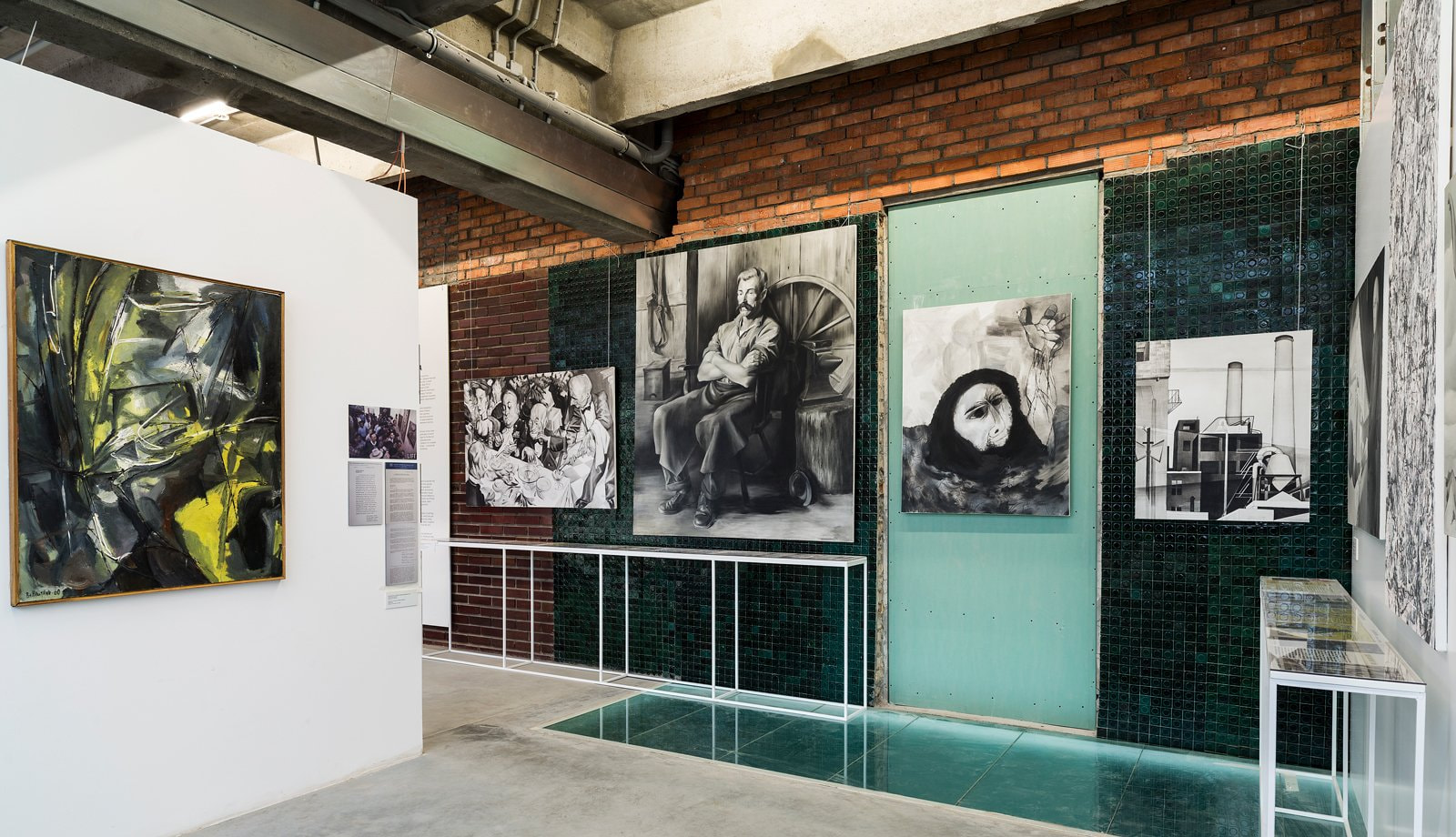Face-to-face: The American National exhibition in Moscow, 1959/2015 in collaboration with the Museum of American Art in Berlin (MoAA)
Working closely with the MoAA, Face-to-Face: The American National Exhibition in Moscow, 1959/2015 explores the uncharted reverberations this exhibition, held in Moscow, had on culture in Soviet Russia. Through the perspective of the socio-political situation today, the “resurrection” of this legendary show aims at highlighting how crucial such “face to face” encounters were not only for culture, but also potentially for altering the course of the Cold War.
Partial reconstructions of the elements in the original exhibition, including artworks and aspects of the design will be exhibited alongside rare primary materials and artifacts, historical reviews, films, recollections and comments from visitors and tour guides. Moscow-based Americanist, Dr Victoria Zhuravleva and historian Alexander Shubin have provided academic guidance in building the cultural, as well as geopolitical context to reassess the importance of this event today. Special focus is given to the pursuit of science and technology as a common aspiration for both the USSR and USA.
Predominantly known for the provocative “Kitchen Debate” that took place between US Vice President Richard Nixon and Soviet Premier Nikita Khrushchev, the American National Exhibition took place in Sokolniki Park in central Moscow. It showcased the USA’s achievements in the fields of technology, fashion, manufacturing, and culture. Officially the exhibition provoked rigorous criticism of the consumerist society that it represented, but received great public acclaim. For A Progress Report the intentions of the original exhibition have been explored to deconstruct and better understand the actual (yet fictionalized) historical context of the event, while simultaneously exploring the impact of how narratives are affected when revisiting events in the past from the perspective of the present.
Developed in collaboration with the Museum of American Art in Berlin (MoAA).
Thanks go to Vladimir Meletin; Dan Slobin; The Kennan Institute, Woоdrow Wilson International Center for Scholars, Washington D.C.; History through the eyes of Krokodil. 20th century publishing house, Moscow; Polytechnic Museum, Moscow; Moscow Design Museum; The Masey Archives, New York and especially Beverly Payeff-Masey.
